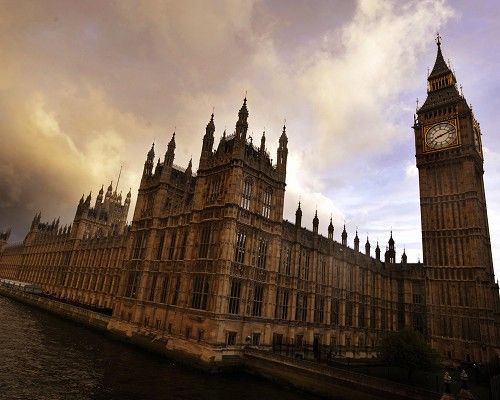

UK MP's will today discuss a key money laundering bill which could have far reaching consequences for the Channel Islands' financial services sector, and its right to self-government.
Yesterday, the Chief Ministers of Guernsey and Jersey, along with other crown dependency representatives, held last-minute talks with Ministers in London to argue the islands' case to independence.
The Sanctions and Anti-Money Laundering Bill, which is sponsored by UK Foreign Secretary Boris Johnson, aims to help expose those who may be sheltering funds linked with criminality, terrorism and corruption in Britain territories.
But there are proposed amendments that would see the Secretary of State push for Crown Dependencies to make their existing beneficial ownership registers publically accessible, with or without their consent.
Both Guernsey and Jersey have set up their own registers in the last year, but they are only privately accessible for law enforcement and not open to public viewing, unlike the register of the UK.
In a joint statement on behalf of Deputy St Pier, Jersey Senator Gorst and himself, Isle of Man Chief Minister Howard Quayle said the islands were expecting their constitutional arrangement to be respected.
"I have met Senator Ian Gorst of Jersey and Deputy Gavin St Pier of Guernsey and together we will resist any orders that breach that convention."
Particularly in Jersey, some amendments to the bill could also force the publication of the identities of those who own Jersey companies, and then try and buy properties in the UK, or make a bid for government contracts. These are being pushed by a cross-party group of politicians led by Labour MP Dame Margaret Hodge, and supported by a number of Conservative politicians following the increased scrutiny of 'oligarch-linked' funds in the wake of the Sergei Skripal poisoning.
If approved, the new law would see the 20,000 properties owned by Jersey-registered companies and entities across England and Wales – worth hundreds of millions – forced to reveal the identities of those ultimately benefiting from them, within the next 12 months.
The amendment has since been criticised by Jersey tax expert John Shenton, a Grant Thornton Director, who linked it with “petty public point scoring” and argued that the island “should not give in to populist bullying and intimidation.”
He told Express that the move made little sense, given that Jersey already has a register of beneficial ownership, which, although not fully public, can be accessed on request by UK law enforcement and government agencies.
Moreover, he warned that the move could ultimately damage business in Jersey by leaving clients open to extortion and even kidnap.
“One is unable to see that allowing the general public to access this information will lead to anything other than more sensationalist headlines and actually an increase in activity due to delicate, private and potentially sensitive personal information being in the public domain… One can easily make a list of reasons why one would not wish to have private information in the public domain. Kidnap and ransom are generally the more extreme examples, but on a more basic level, burglaries where the high profile owner may be out of the country, simple protection for individuals from public glare and attention, or probably most commonly, vandalism and harassment where a person does not agree with something that has been said,” he said.
He added that the move “would no doubt make Jersey a less favourable jurisdiction if other jurisdictions could provide the same level of service but with the added protection of maintaining the investors basic human rights.”

Senator Gorst originally hit out at the idea as "unconstitutional" but has since stated that he has since met with UK Ministers and officials, who say that they have tabled their own amendment that would not "attempt to impose legislation" and respects the constitutional relationship between Crown Dependencies and the UK.
"I believe this reflects Jersey’s leading position in having already established registers of beneficial ownership and effective procedures for information sharing that prevent the island from being used for money laundering and terrorist financing. If public registers were to become an international standard, we will consider implementing such a policy in the same way as we have other international standards in this area.
“The speed with which the UK Government has intervened on this issue demonstrates the value of our close co-operation and our centuries of shared heritage.”
Comments
Comments on this story express the views of the commentator only, not Bailiwick Publishing. We are unable to guarantee the accuracy of any of those comments.